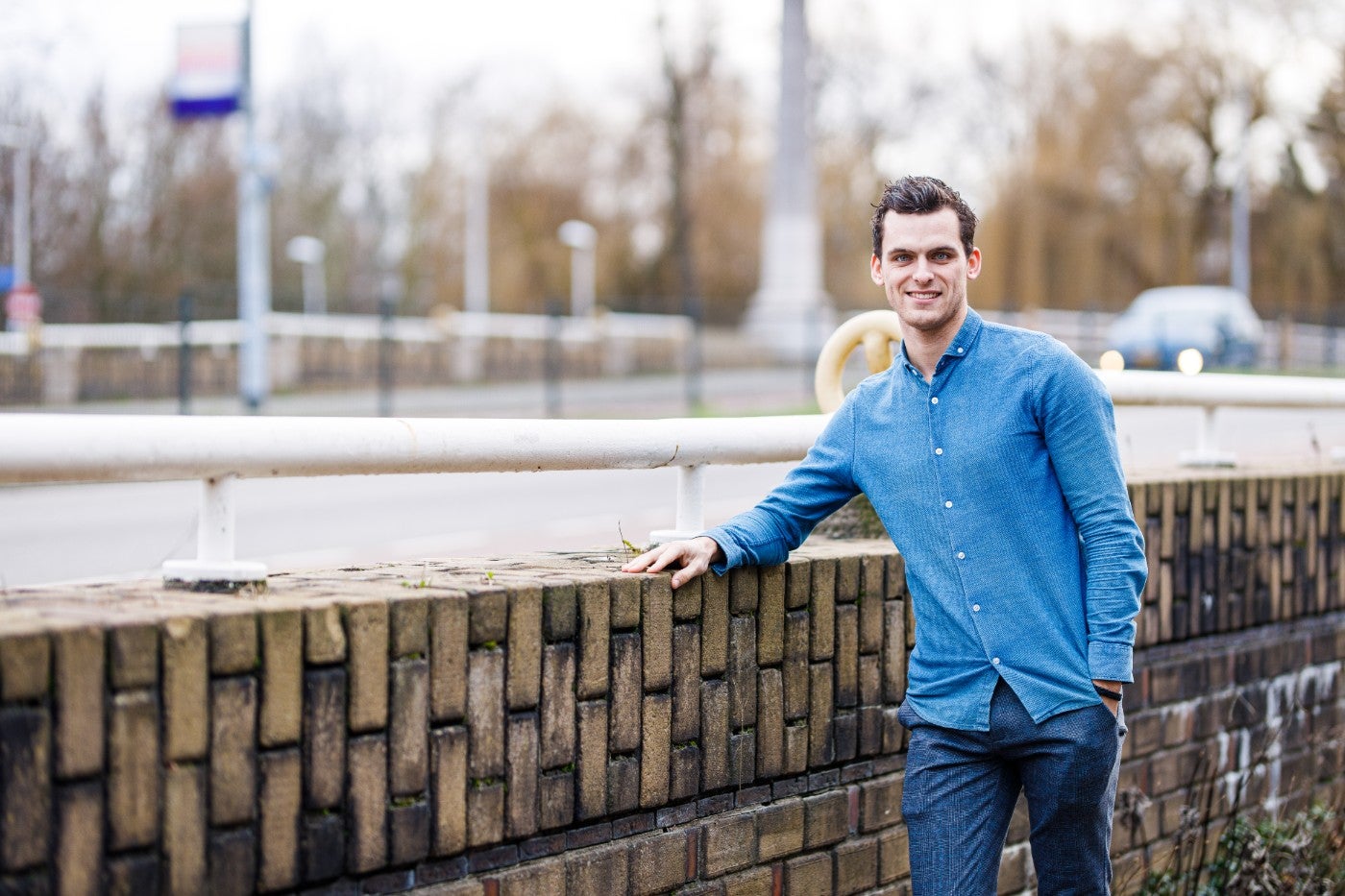With MOYU, his reusable notebook start-up, Paul Sintnicolaas (28) is contributing to creating a better world.
What’s the secret behind reusable notebooks? Do tell!
„Our notebooks are made from stone paper, a sustainable material whose production does not require the use of wood and paper. The paper resists tearing and is water-repellent and re-writeable. You can write, erase and rewrite in one of these notebooks up to 500 times, so it’s extremely sustainable. And we plant a tree in Kenya for every notebook purchased, too."
You’re a commercial company committed to sustainability. Do you encounter a lot of prejudices?
„Absolutely. People are sceptical and often think that this is a type of ‘greenwashing’. I do think that this caution is justified, in the first instance. About 99 percent of companies are currently working on sustainability. Many of them are not intrinsically motivated to do so, but are responding to pressure from society or the market, and because it’s a way they can increase their turnover. It’s better than doing nothing at all, but still – sustainability is something to be used, not abused."
„There’s little friction at MOYU, I’ve noticed, and there’s actually a mutually reinforcing effect instead. We are transparent in calculating our impact. If we sell more notebooks, we increase our turnover and have a greater impact. Naturally, we make sure that the company can continue to exist and operate. You can’t just give away half of your turnover, and I want to pay our employees a salary that makes them feel appreciated and valued. The mission of the company is to ‘reforest’: to create nature and battle deforestation – and we are succeeding in achieving that."

You did the Master’s in Entrepreneurship at Vrije Universiteit Amsterdam. Would you recommend it to others?
„Definitely. It’s a great kick-start for anyone wanting to be an entrepreneur. You receive a broad theoretical education, learn practical skills from work placements, and you get to be part of a vibrant network of 150 intelligent entrepreneurs. Last year, two students from the Master’s programme undertook a work placement at MOYU in which they learnt how to actually talk to customers and test advertisements. They are now employed with us and are setting up the international branch."
What lesson in entrepreneurship have you learnt in the past year?
„We’re now in the phase of transitioning from start-up to scale-up. We’ve increased from six to 22 employees. I really enjoy creating something ‘from scratch’, but now I’m entering more of a manager role and I have to start letting go of some things. I’m rather impatient by nature. In meetings, I have to make an effort to keep my mouth shut and actively listen to others. As an entrepreneur, you’re stubborn, and you have a vision for and an opinion about everything. However, if you want to make your business scalable, then you really have to learn to let go of things and understand that others can do them better."
Finally, what tips do you have for other budding entrepreneurs?
„Just do it. That might sound overly simple, but it’s where a lot of people get stuck. It’s all too easy to think of excuses not to get started. Everyone has 24 hours available to them in a day, and we sleep no more than nine hours on average. Whether you’re studying or working, there will be a few hours each day in which you can get a lot done. So you might eat the occasional meal behind your laptop – whatever. The point is, the way the world operates now, there’s really no excuse any more. It costs almost nothing to build a website, and you can then implement your ideas and test them. It just requires discipline."








